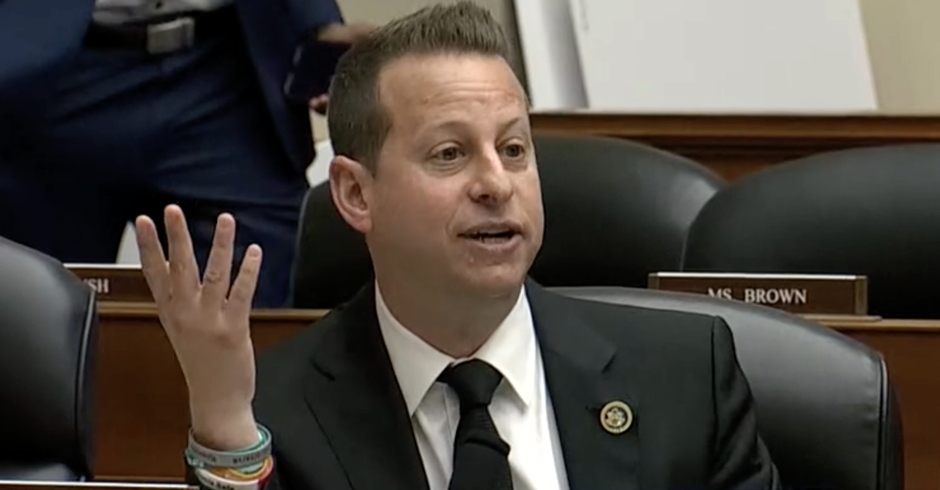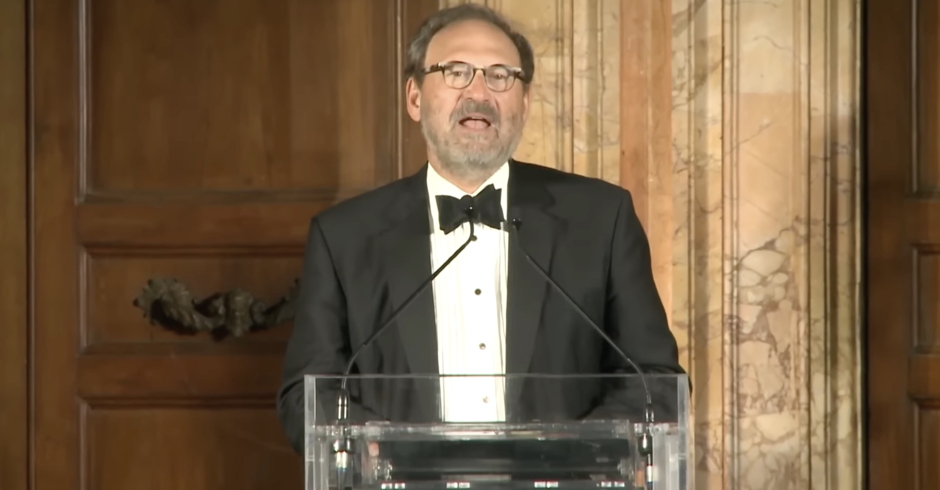What America’s Top LGBT Leaders Think Obama Must Do Next
Barack Obama‘s win of a second term was achieved not in spite of his support of the LGBT community but in part because of it. The question now is what President Obama should do next in his second term to move the civil rights of people in our community “forward.” I asked 10 of America’s top LGBT leaders what they are thinking. From GLAAD to HRC to GetEQUAL, leaders from some of the most active organizations, along with independent and grassroots activists and opinion shapers, shared with me their thoughts and plans for “Obama 2.0.”
The good news? A tremendous amount of expectations overlap, which translates into a more united LGBT front that hopefully can speak louder and work together even more effectively.
LGBT leaders want the president to sign an executive order banning employment discrimination against LGBT people working in the federal government and working for government contractors — the executive order President Obama refused to sign earlier this year. And they want ENDA, the Employment Non-Discrimination Act, passed, and DOMA, the ban on federal recognition of same-sex marriages, repealed. Perhaps the biggest surprise I heard — albeit one absolutely on-target — is their repeated demand for a resolution of sequestration, the impending financial “fiscal cliff,” fears of which brought the stock market to its knees the day after Obama won reelection. And, finally, as I’ve been advocating for years, many want to build coalitions with other social justice movements.
Given the success of what our opponents, like NOM’s Maggie Gallagher, are now calling “the Obama electorate” (which is, in reality, just who America has become), coalition building seems perhaps our greatest opportunity for furthering the momentum this week’s elections created.
“The huge victories that the LGBT community achieved — on ballot initiatives, in the election of Tammy Baldwin to the Senate, in the increase of our LGBT caucus in the House, and in the reelection of a president who stands with us on marriage equality — must be seen in concert with the powerful statement that the American electorate has just made about women’s equality and women’s dignity,” Tobias Barrington Wolff, a law professor at the University of Pennsylvania Law School, tells me.
“The LGBT community and women are natural political allies, fighting to secure equal citizenship through overcoming gender stereotypes and to eliminate sexual shame and repression as forces in American public policy,” added Wolff, who served as chief advisor and spokesperson on LGBT issues for the Obama for America 2007-2008 presidential campaign. “Coalition building has always been an indispensable component of success for LGBT rights, and this election has made clear the importance of a strong and active coalition with women.”
The LGBT community under Barack Obama’s presidency has achieved historic successes, and on Election Day, those successes grew exponentially. After Obama’s May 9 declaration of support for same-sex marriage, voters this week elected, for the first time ever, to expand the institution of civil marriage to same-sex couples in three states, and in a fourth state voters decided that writing anti-gay discrimination into their constitution — permanently banning same-sex marriage — was a step too far. Voters also tossed out a virulently anti-gay mayor in Troy, Mich., but refused to fire an Iowa Supreme Court judge who, in a unanimous decision, had ruled that a ban on marriage equality was unconstitutional.
Remember that just four short years ago, Californians decided that Prop 8 was a good idea. Think how far we’ve come.
https://youtube.com/watch?v=Tb60nFeJsNc%3Fversion%3D3%26hl%3Den_US
Believing that “we could see tremendous forward movement in the years to come, something really incredible,” civil rights attorney and LGBT activist Yetta Kurland notes that “change in public opinion is not in a vacuum. It has happened because of efforts from all directions, not just the grassroots efforts of organizations like Marriage Equality USA but significantly because of President Obama coming out in favor of marriage equality, the DNC officially putting it on their platform and other institutions like the NAACP taking an official position in support of marriage equality.”
So what does that “tremendous forward movement” for the LGBT community actually look like? Although this week’s news is great, the fact is that we’re still living under DOMA. We’re still hoping for marriage in 41 states. We still have no ENDA. We can still be fired in 29 states for being lesbian, gay or bisexual, and in 34 states for being transgender.
The LGBT leaders I talked to weren’t shy or complacent in their demands. In fact, they seemed more energized, more disciplined, more motivated, clearer and more mature than ever, not just in their goals but in their strategies, and in their expectations of a president who won a clear mandate, in part thanks to their efforts.
“Obama should express the full-throated, fearless support for total equality for gay and transgender people that we expect from a historic leader,” Herndon Graddick, president of GLAAD, tells me. “No more rhetorical tinkering at the edges of the issue. Lukewarm support for full human dignity of all our citizens shouldn’t be an issue one is only convinced of by one’s teenage children. Obama should demonstrate conviction and make it clear routinely that LGBT people deserve full equality in every aspect of American life, and take every concrete step within his power to make it so. History will remember him for doing anything less.”
Unburdened by the need to get reelected, this president has been given the mandate to move the progressive agenda forward, not just for LGBT people but for all people.
Mitt Romney, it turns out, wasn’t the only one with a five-point plan. Civil rights activist and bestselling author David Mixner has one, too — but it’s a lot more credible:
- Appointments to the Supreme Court
- Repeal of DOMA
- Passage of ENDA
- LGBT cabinet member and other appointments
- More focus on transgender rights
Mixner, a political activist since the 1960s, worked to elect Bill Clinton but broke with him when “don’t ask, don’t tell” (DADT) became President Clinton’s official policy. He’s been working, and fighting, for our community ever since.
Obama’s repeal of Clinton’s military service “compromise” was just one of the many goals we’ve been successful in achieving over the past four years, because we held President Obama’s feet to the fire. When it looked like repeal of DADT wasn’t going to happen, it took GetEQUAL’s repeated civil disobedience acts — chaining themselves to the White House fence — to force the issue into the public’s attention, and, frankly, to anger the president so much that he was forced into action.
“We only have about six months to prove to Congress and to President Obama and his administration that we will not rest until we are equal, with no caveats, no excuses and no exceptions,” GetEQUAL chair Tanya Domi says of Obama’s second term, adding, “We will continue to pressure and press President Obama to sign an executive order for employment nondiscrimination for LGBT people in the federal government, as part of a broader agenda.”
The president’s refusal to sign that executive order has been a hard pill for the LGBT community and our leaders to swallow.
“First and foremost,” says Fred Sainz, HRC’s vice president for communications and marketing, Obama must sign “an executive order on nondiscrimination with respect to federal contractors. That’s the most high-profile of the issues.”
But it’s far from the only one.
Sainz is quick to note that because “the Obama administration is the first pro-equality one in history, we have literally dozens of unfulfilled needs.” He adds, “We’ll be looking to get them done in the next four years.”
Just as an executive order for ENDA is a goal shared by practically every group I talked with, the belief that death has come to “the age-old moniker that gay issues were politically toxic,” as GetEQUAL tells me, is also shared by many, it seems, including Freedom to Marry’s founder and president Evan Wolfson.
“When we set out to pave a pathway for President Obama’s historic announcement of support — and rallied the Democrats around a freedom-to-marry plank for the party platform — naysayers pushed back, saying it was unrealistic, that it would hurt Obama. But Freedom to Marry made it happen, and we are seeing the opposite effect: victories in Maine, Maryland, Minnesota and potentially Washington state, in addition to the resounding reelection of President Obama, the first sitting president to support the freedom to marry.” (Washington voters have since approved marriage equality.)
Wolfson, often called the father of the same-sex marriage movement, believes “these wins give us further momentum” and is working “on the roadmap to create the environment for a positive Supreme Court ruling.”
In fact, on many fronts, the Supreme Court is the ultimate prize.
President Obama won the right to name new — and hopefully progressive, not just left-leaning — justices to the nation’s highest court, cementing for a generation a far less conservative bench. In making those nominations, he should remember who put him back in the White House. At least 5 percent of those who voted for Obama were lesbian, gay or bisexual. Without us, he might not have won the popular vote.
With DOMA and Prop 8 cases likely headed to the Supreme Court, the LGBT community stands poised to be rid of those two atrocities. “It’s now hard to believe that SCOTUS will not end Prop 8 and rule DOMA unconstitutional in the near future,” Dr. Dana Beyer, executive director of Gender Rights Maryland says, adding, “I expect the Supreme Court will do the right thing this coming session.”
As much as the court may claim otherwise, it is a political body and can’t help but be aware of the overall temperature of the American populace. Marriage equality, now the law in nine states plus D.C., including three states in which voters themselves chose equality, offers the court, for the first time ever, an opportunity to extend equality to same-sex couples without credible accusations of being an “activist” body, as conservatives erroneously branded it after it ruled in favor of Obamacare.
And now that Obamacare is safe from the “on day one” proclamations Mitt Romney made — promising to repeal it — LGBT people should remember that a President Romney would have allowed states to take away hospital visitation rights protections, rights Obama enacted and separately codified into law through Obamacare.
Gay or straight, at the end of the day, what we’re fighting for are the same protections that other Americans have as their birthright. At the top of that list are protections for our families, including the “the 1 million parents in this country who are lesbian, gay, bisexual and transgender and the 2 million children they are raising,”  Jennifer Chrisler, Executive Director of the Family Equality Council, tells me.
“I would hope his reelection would give President Obama the feeling that he has the winds of change at his back and embolden him to force a divisive Congress to take action on several critical issues for our families, including the freedom to marry for all Americans (Respect for Marriage Act), the elimination of discrimination in foster care and adoption (Every Child Deserves a Family Act), fairness in employment (Employment Non Discrimination Act), and safe schools (Student Non Discrimination and Safe Schools Improvement Acts),” Chrisler says.
Not that anyone needed proof, but the LGBT community is just like everyone else — and we’re not one-issue voters. We’re fighting for the right to marry and the right to not get fired for who we are, but we’re also existing in the same economy as every other American.
“So where do we go from here? We resolve the sequestration problem, and while we’re doing that, we focus on jobs by strongly encouraging the president to fulfill his promise to issue an executive order covering LGBT persons in the federal contractor workspace (trans and gender-nonconforming gay persons are already covered under EO 11246, but confirmation never hurt anyone),” Dr. Beyer says.
Beyer isn’t the only one mentioning sequestration, aka the 2011 Budget Control Act that will, as of Jan. 2, 2013, impose $1.2 trillion in federal cuts over 10 years to defense and non-defense spending. HRC’s Sainz is equally concerned, and rightly so, because sequestration of course affects LGBT people, too. In fact, Sainz puts it at the top of Obama’s “to do” list.
“First and foremost will be the devastating cuts that could come the way of our community because of sequestration,” Sainz tells me. “No one has paid attention to this, but our community should rightly move into high gear on this issue.”
The fact is that LGBT leaders have expanded their focus and, like the president himself, recognize that civil rights issues are economic issues, and so they’re focused on jobs, employment protection and fiscal policies — and that really takes the wind out of the sails of both the Log Cabin Republicans and GOProud, the two gay Republican groups who claim that their existence is necessary because of their focus on the economy but who have proved not only embarrassing to the LGBT community but have actually helped move the GOP to the right on LGBT issues.
So what’s left?
The Victory Fund, which focuses on electing LGBT leaders to public office, notes that the Obama administration has appointed over 250 “openly LGBT professionals to full-time and advisory positions in the executive branch, more than all known LGBT appointments of other presidential administrations combined.”
To David Mixner’s point, award-winning veteran journalist Karen Ocamb, news editor for the Los Angeles-based Frontiers magazine and editor of LGBT POV, reminds me, “Since 1992, we’ve been talking about how the president’s cabinet should reflect America. I think this election shows it’s time for us to be in that room, too.”
Why not the first  openly LGBT cabinet secretary?

Enjoy this piece?
… then let us make a small request. The New Civil Rights Movement depends on readers like you to meet our ongoing expenses and continue producing quality progressive journalism. Three Silicon Valley giants consume 70 percent of all online advertising dollars, so we need your help to continue doing what we do.
NCRM is independent. You won’t find mainstream media bias here. From unflinching coverage of religious extremism, to spotlighting efforts to roll back our rights, NCRM continues to speak truth to power. America needs independent voices like NCRM to be sure no one is forgotten.
Every reader contribution, whatever the amount, makes a tremendous difference. Help ensure NCRM remains independent long into the future. Support progressive journalism with a one-time contribution to NCRM, or click here to become a subscriber. Thank you. Click here to donate by check.
 |






















